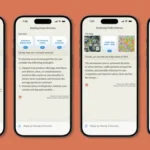Nowadays, API development is incredibly easy with all the tools available. Almost all organizations are upgrading their infrastructure to microservices.
Due to intense competition in the market, you must create applications that can solve your customers’ problems.
Today, everyone is looking for faster results. Therefore, it is necessary to develop a concept to offer faster services.
The application programming interface (API) testing process checks for an application’s functional, security, and performance requirements.
APIs can be created manually or automatically, depending on business requirements.
Before you start building your API and testing it, let’s look at what is API design.
What is API Design?
The API design process is the development of (APIs) sharing information and functionality in the form of application data to developers and users. An API is essential for modern organizations, enabling enhanced operations, products, and partnerships.
API programs must be aligned with an organization’s overall corporate strategy to effectively contribute to the company’s goals.
Top API testing tools
- Postman
The Postman API development ecosystem helps users build and publish APIs by allowing them to download the Postman desktop application or sign up using the web interface. In short, Postman is an API development platform that helps users build and design APIs. Facilitating every step of the API lifecycle speeds up collaboration and allows you to develop better APIs faster.
It will provide you with comprehensive tools for accelerating the lifecycles of design, mockup, documentation, testing, and even collation of results.
Key Differentiators
Explicit and automated tests can be carried out API testing with Postman provides many benefits, including automated and simplified exploratory testing. It is often thought that exploratory testing is at odds with automated testing. However, it should reveal defects that other types of testing may not capture, so it is complementary to automated testing.
Collaborative tools- Postman enables teams to collaborate on workflow documents, work with a single truth source, and notify colleagues of any changes.
- SoapUI
As one of the most popular API testing tools currently on the market, SoapUI is an excellent option for you. The tool is a Java-based open-source tool that tests web services like SOAP, REST, or HTTP-based services. Although SoapUI is a free tool, it has an optional companion tool called ReadyAPI, which offers additional capabilities related to API testing.
Benefits
A code-free testing environment- By offering a code-free testing environment, SoapUI simplifies the process of creating complex tests by integrating drag-and-drop and point-and-click tools that streamline the test creation process.
Data-driven tests- SoapUI (ReadyAPI) lets users simulate interaction with APIs with data-driven tests. In ReadyAPI, data is read and looped based on external sources. These sources include databases, Excel, XML, and files.
Katalon Studio- Katalon Studio is an API testing solution suitable for experienced and novice testers. This framework can combine UI and API services across multiple platforms, including Windows, Linux, and macOS.
Katalon Studio allows users to automate testing without needing to learn how to code.
What sets it apart?
The IDE is easy to use: Katalon Studio IDE lets users be more productive through auto-completion, auto-formatting, and code inspection features. It also offers customizable, pre-built code templates. That makes scripting and debugging a lot easier, and API tests are also a lot easier.
Data-driven testing- Like SoapUI, Katalon Studio enables users to carry out automated data-driven tests by reading data from within and beyond the software.
- Apigee
JavaScript-based Apigee is a platform that manages and tests API performance by monitoring API traffic, error rates, and response times. The platform is available in both public and private clouds. Complex digital businesses can benefit from this since they can handle large amounts of data APIs.
Key Differentiators
Testing cross-cloud APIs- The cross-cloud capabilities allow users to host their APIs in any location: on-premises, Google Cloud, or a hybrid mix. Apigee’s API testing platform will enable developers to choose between public and private clouds.
Easy to create API proxies – You can protect your front-end API from back-end changes using API proxies. To pull this off, Apigee separates front-end APIs from back-end services.
Automated processes powered by artificial intelligence- Using artificial intelligence, Apigee ensures APIs perform as expected. API issues can be diagnosed with just a few clicks, and artificial intelligence-powered API monitoring can help detect irregularities in real-time.
Conclusion
API success depends on the end-user experience, so it is essential to develop and test APIs strategically To help you achieve this goal, you can find tools that will help you develop and test APIs that deliver the best services to the end-users and allow them to improve the overall experience.









